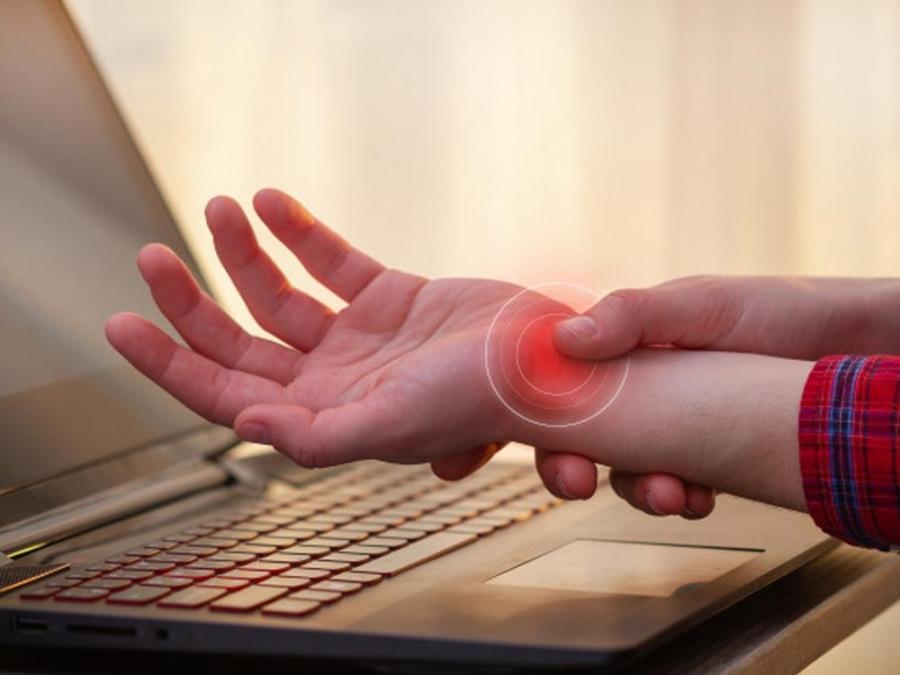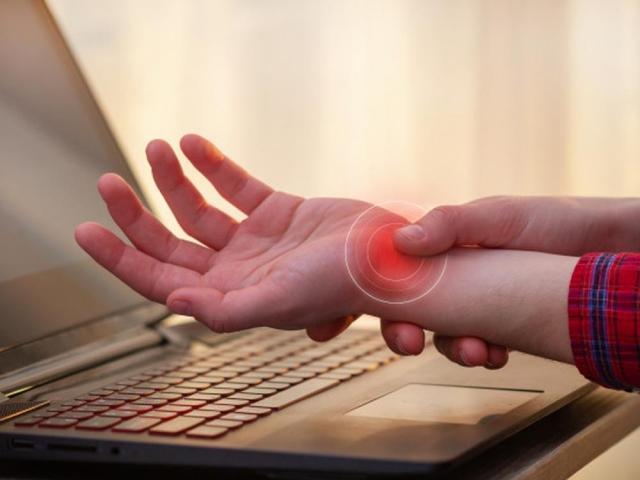

Carpal tunnel syndrome caused by overuse of computer keyboard?
Around GMA
Around GMA
Balitanghali Livestream: December 22, 2025 Farm to Table: (December 21, 2025) LIVE Content creator Arshie Larga reveals his biggest investment in 2025Article Inside Page
Showbiz News
How do we prevent developing carpal tunnel syndrome in the future? Learn more on 'Pinoy MD.'
Everyone knows that spending too much time working on a computer keyboard and mouse can cause hand pain and numbness, often referred to as carpal tunnel syndrome.
According to neurologist Dr. Mark Sta. Maria, many factors aside from the overuse of a keyboard or a mouse can increase the risk of developing carpal tunnel syndrome.
Carpal tunnel syndrome or CTS occurs when tendons in the wrist swell, applying pressure in the median nerve that runs through the forearm to the hand.
CTS can cause several ailments, including numbness, tingling in the hand, muscle weakness, and clumsiness when the condition worsens.
Additionally, Dr. Sta Maria says that many factors may contribute to CTS development, namely age, gender, heredity, and prevalent medical conditions.
“Usually sa wrist 'yan, 'yung mga ugat kasi natin mula sa brain, sa spine, at gumagapang sa kamay para makaramdam tayo--'yun ang function ng nerve,” he explains.
“Kaya tinawag na carpal tunnel, mayroon kasing tunnel sa ilalim ng ating wrist at doon nagkakaroon ng pag-ipit o entrapment sa nerve na 'yon.
“Unless meron silang congenital na problema o mga problema sa buto o sa joints, madalas 'yan sa mga elderly na nasa 40s at 50s. Not unless din meron kang ibang sakit na diabetes kaya may mga batang nagkakaroon.”
Aside from excessive computer use, some work activities can aid in developing CTS, including repetitive manual work that requires a forceful grip and the use of vibrating tools that damage the median nerve in the arm.
So how do you reduce the risk of developing carpal tunnel syndrome?
Physical medicine and rehabilitation doctor Hubert Lo suggests learning some physical therapy exercises to reduce its symptoms, including the Flexor Retinaculum Stretch and the Median Nerve Mobilization.
If you've developed carpal tunnel syndrome, it's also important to know your options for treating CTS.
Your options include visiting a physical therapist twice to thrice a week, steroid injections, wax paraffin, and wearing wrist splints.
Surgery, however, may be necessary if there's severe damage to your median nerve, so it's important to have a professional check your condition first before self-medicating.
Watch how to do these basic hand and arm exercises in this video from Pinoy MD:
Carpal tunnel syndrome can be disruptive to your daily life, so it's important to seek your doctor when you've been experiencing symptoms for some time.
If at-home remedies don't work, find out more about the other available treatments for you. Remember, early diagnosis and treatment is the best way to prevent permanent nerve damage.
For more health and wellness tips, check out GMA Network's Lifestyle Page!
Meanwhile, take a look at work-from-home setup of these celebrities: